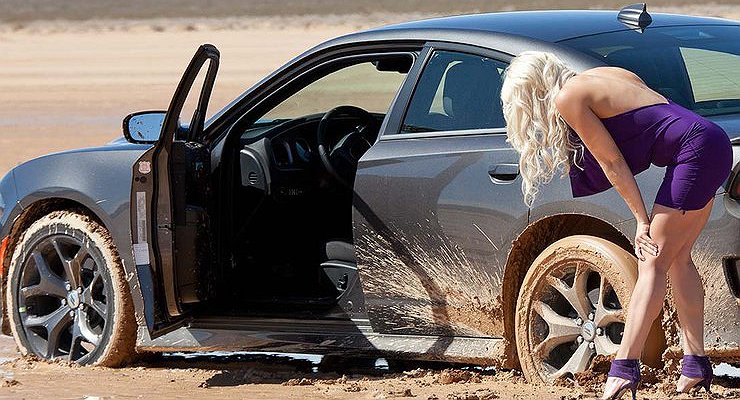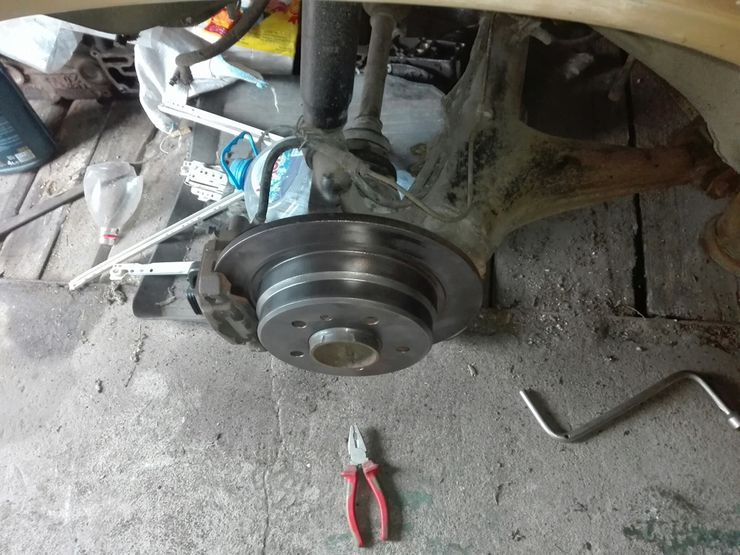Without brakes: how categorically impossible to store brake fluid
- June 3, 2022
- 0
Many diligent drivers constantly have a stock of necessary spare parts and technical fluids in the trunk of their car. And it’s right. But only until the moment
Many diligent drivers constantly have a stock of necessary spare parts and technical fluids in the trunk of their car. And it’s right. But only until the moment

While operating the vehicle, the driver may occasionally need to update or top up certain fluids. And brake fluid is no exception. Sometimes the upgrade takes quite a while. Drivers leave the rest of the volume for later, hoping that after covering the “brake” with a lid, they will keep it safe until next time. And yet here lies a great mistake.
The thing is, the “brake” is very hygroscopic. In other words, it is able to absorb moisture from even a small amount of air. And it needs only 3.5% of its volume of water to change the qualitative composition, which allows the brake fluid to boil. What can we say about a fairly standing “brake”, which can absorb much more moisture – it will simply be useless.
Thus, 5% of the moisture from its volume “brake” easily gains in a week, if you leave it in an open container. And here’s the advice: if you’re having the liquid topped up, remove the air from the jar before hiding it with a lid. And then close the lid tightly.
In general, if the brake fluid is leaving the system somewhere, it is a reason to overhaul the system. Leaks and malfunctions must be rectified. And then you no longer have to carry open bottles with you.
And what if you have a new, unopened eggplant “brake” with you? Alas, ah, but even in a factory-sealed container, brake fluid doesn’t keep forever. Over time, the viscosity and boiling point change worse. And if, when repairing the brake system, you remember that you have had a sealed bottle of brake fluid with you for two years, then this is not at all a cause for joy that you are now going to save. A rather stale fluid can not only significantly degrade brake quality, but can even cause corrosion in the lines and calipers. And this is a repair for very different money than you saved.
But what if there were never any problems with the brakes and no need to top up the fluid? Remember and write down: the brake fluid should be changed every two years. Because even in a closed circuit, the moisture can build up and wear out, especially if a temperamental driver is driving.
SUBSCRIBE FOR EXCLUSIVE CONTENT
PORTAL “AVTOVGLYAD” IN TELEGRAM

While operating the vehicle, the driver may occasionally need to update or top up certain fluids. And brake fluid is no exception. Sometimes the upgrade takes quite a while. Drivers leave the rest of the volume for later, hoping that once they cover the “brake” with a lid, they will keep it safe until next time. And yet here lies a great mistake.
The thing is, the “brake” is very hygroscopic. In other words, it is able to absorb moisture from even a small amount of air. And it needs only 3.5% of its volume of water to change the qualitative composition, which allows the brake fluid to boil. What can we say about a fairly standing “brake”, which can absorb much more moisture – it will simply be useless.
Thus, 5% of the moisture from its volume “brake” easily gains in a week, if you leave it in an open container. And here’s the advice: if you’re having the liquid topped up, remove the air from the jar before hiding it with a lid. And then close the lid tightly.
In general, if the brake fluid is leaving the system somewhere, it is a reason to overhaul the system. Leaks and malfunctions must be rectified. And then you no longer have to carry open bottles with you.
And what if you have a new, unopened eggplant “brake” with you? Alas, ah, but even in a factory-sealed container, brake fluid doesn’t keep forever. Over time, the viscosity and boiling point change worse. And if, when repairing the brake system, you remember that you have had a sealed bottle of brake fluid with you for two years, then this is not at all a cause for joy that you are now going to save. A rather stale fluid can not only significantly degrade brake quality, but can even cause corrosion in the lines and calipers. And this is a repair for very different money than you saved.
But what if there were never any problems with the brakes and no need to top up the fluid? Remember and write down: the brake fluid should be changed every two years. Because even in a closed circuit, the moisture can build up and wear out, especially if a temperamental driver is driving.
SUBSCRIBE FOR EXCLUSIVE CONTENT
PORTAL “AVTOVGLYAD” IN TELEGRAM
Source: Avto Vzglyad
I’m Sandra Torres, a passionate journalist and content creator. My specialty lies in covering the latest gadgets, trends and tech news for Div Bracket. With over 5 years of experience as a professional writer, I have built up an impressive portfolio of published works that showcase my expertise in this field.